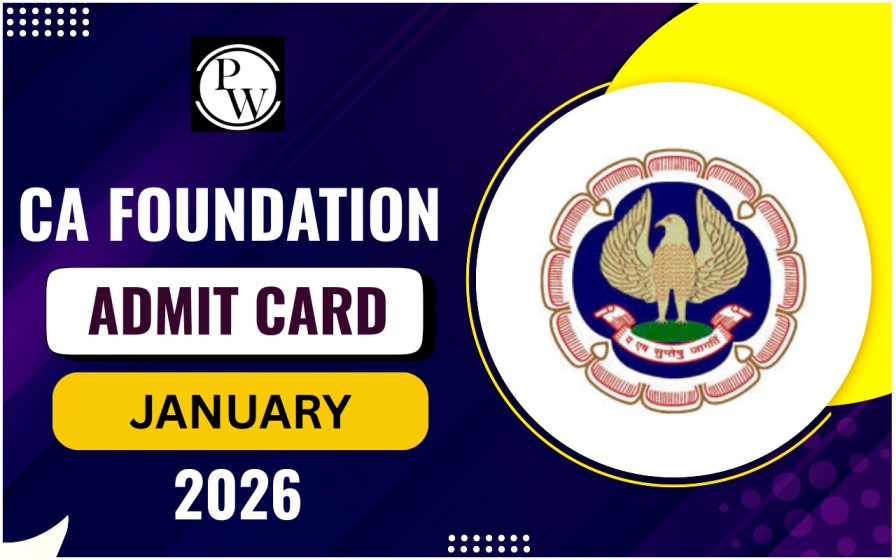
Types and Enforcing of Laws: Understanding the different types of Laws and how they are enforced is crucial for CA Foundation students. This topic dives into how laws are categorized and the processes behind the implementation of laws. It highlights the role government, the courts, and the officials who ensure that laws are upheld. Below, we’ll see various types of laws, the enforcement mechanisms in place, and their significance in our everyday lives and in the business world.
Types and Enforcing of Laws
There are two important aspects to understand in this topic. One is the classification system of the laws. The other is the practical application in real life. Understanding both parts enables you to comprehend how the legal system works in India.
The types of laws help us understand the various rules and their various rules and their objectives. Enforcement ensures compliance with the rules. Without enforcement, good legislation would remain unimplemented.
What is Law?
The Law consists of regulations established by the government. These guidelines inform individuals about what actions they can take and what actions they should avoid. Laws aid in maintaining order, addressing issues, and ensuring fairness for all. All individuals in the nation are required to adhere to the laws, including private citizens, businesses, and the government itself.
Classification of Laws in India
Laws in India are divided into various types. This is called the classification of laws in India. Let’s understand the major types of laws:
Criminal Law
This legislation is aimed at individuals who commit wrongful acts such as theft or harming others. It penalizes them to ensure societal safety
Civil Law
This law is used when two people or companies have a fight, like over money or property. It helps solve the issue fairly without punishment.
Common Law
These are laws made by judges when they decide on cases. These past decisions help other judges in similar cases.
Natural Justice
This is a basic rule that says everyone should be treated fairly. No one should judge their own case. Both sides must be heard.
Understanding Civil and Criminal Laws Difference is very important. Criminal laws involve crimes and punishment. Civil laws deal with rights and duties between people or businesses.
Who makes the Law?
Laws are enacted by the Parliament or the State Legislative Assemblies.
-
The legislature creates regulations for the entire nation.
-
State Assemblies create legislation for their states.
There were three lists:
Union List: Issues such as railways and national defense.
List of Responsibilities: Issues such as law enforcement and healthcare facilities.
Concurrent List: Issues such as education and forestry. Laws can be enacted by both the Centre and the State in this context.
Steps in Law-Making
Here are the steps used to make a law in India:
Drafting: This is the first step where the idea of a new law is written down clearly. It includes the purpose, need, and points to be covered. Usually, this draft is prepared by legal experts, ministers, or officers.
First Reading: The draft is introduced in either the Lok Sabha or the Rajya Sabha. Only the name and aims of the bill are read out. There is no discussion at this stage. The bill is then printed and shared with members.
Second Reading: This is the most important stage. Here, the members discuss the bill in detail. The bill may also go to a committee to be studied properly. Suggestions and changes are shared and noted.
Third Reading: After all discussions and changes, the final version of the bill is read out. The members then vote on it. If the majority agrees, the bill passes in that house.
Other House: The approved bill now moves to the other house. It goes through the same steps first, second, and third reading. Again, if passed by the majority, it moves to the President.
President’s Assent: Once both houses approve the bill, it is sent to the President of India. If the President agrees, they sign the bill. This is called assent.
Law is Passed: After the President signs the bill, it becomes a law. It is published in the official Gazette and becomes applicable to all.
Enforcing the Law in India
Creating the Law is only the first step. The real challenge lies in making sure that everyone follows it. This process is called enforcement. It makes sure that rules are not only written on paper but also followed.
Executive: These are the government departments and ministries responsible for enforcing the laws. They create policies, provide guidelines, and ensure that the regulations are correctly enforced. For instance, the Taxation Authority implements tax regulations.
Judiciary: This encompasses the courts and magistrates. They verify compliance with laws and resolve conflicts among individuals, businesses, or the government. Courts interpret laws and ensure that all individuals have an equal opportunity to be heard.
Police and Officers: Civil servants such as IAS (Indian Administrative Service), IPS (Indian Police Service), and IRS (Indian Revenue Service) personnel assist in enforcing the law. They examine offenses, gather taxes, maintain public order, and implement government programs.
Collectively, these three components of the system guarantee that laws are followed, justice is served, and the nation operates effectively. Comprehending Types and Enforcement of Laws aids students in recognizing how legal principles transition from texts to practical application through the activities of these authorities. These systems together form the backbone of types and enforcing of laws in India.
Ministries That Help Enforce Laws
Some major ministries contributing to types and enforcing of laws are:
-
Ministry of Finance: Looks after tax laws, money matters, and spending.
-
Ministry of Corporate Affairs: Takes care of company laws.
-
Ministry of Home Affairs: Handles law and order.
-
Ministry of Law and Justice: Manages legal advice and drafts laws.
Each ministry has different departments that handle specific jobs. Officers working in these ministries ensure laws are properly followed.
Sources of Law in the Indian Legal System
When discussing types and enforcing of laws, it's essential to understand where laws originate:
-
The Constitution: The top rulebook of India
-
Statutes: Laws made by Parliament and State Assemblies
-
Judgments: Court decisions that become guidelines
-
Customs: Traditions that are accepted as laws
Legal Rules and Enforceability
Types and enforcing of laws wouldn’t be complete without discussing enforceability. Legal Rules and Enforceability mean that laws are not just written words. They must be followed. If not, then there will be punishment. The government makes sure that laws are followed by everyone
For Example, Not Paying tax is against the law. So, the tax department will take action.
Public vs Private Law in Business Law
Understanding types and enforcing of laws also involves distinguishing between Public Law and Private Law, especially in business:
| Public vs Private Law in Business Law | |||
| Type of Law | Who It Involves | Examples | Purpose |
| Public Law | Government and individuals | Criminal law, Tax law | To control actions and protect society |
| Private Law | Individuals or private companies | Contract law, Property law | To solve personal or business disputes |
Why is it Important to Learn Types and Enforcing of Laws?
The significance of types and enforcing of laws goes beyond exams. It prepares students for real-life application, professional work, and responsible citizenship.
Enhanced Comprehension of Regulations: Understanding the categories and application of laws aids students in grasping how rules are established and their functioning in everyday situations. It addresses fundamental questions and establishes a solid foundation.
Practical in Everyday Scenarios: In routine life, individuals encounter various situations such as leasing a home, purchasing an item, or entering into a contract. This understanding aids in determining the appropriate legal actions in these situations.
Simple Exam Readiness: When learners grasp laws thoroughly, it is simpler to retain important details for tests. They can compose improved responses by including appropriate examples.
Beneficial for Future Career: Acquiring this knowledge is quite valuable for anyone pursuing a CA designation or a role in law or finance. It fosters self-assurance in managing legal documents and regulations.
Develops Awareness as a Citizen: Understanding the functioning of laws enables students to be responsible and informed citizens. They learn to adhere to regulations and are also aware of their rights
Types and enforcing of laws is a crucial topic for the CA foundation. It facilitates you in recognizing how laws are made, their types, and who ensures they are observed. Understanding the types of law in India, Civil and criminal laws difference, the assets of law in the Indian criminal system, criminal guidelines, and Enforceability, and Public vs private law in business law will make your basics stronger.
Types and Enforcing of Laws FAQs
What do you mean by law?
What are the types of laws in India?
Who makes laws in India?
What is the difference between civil and criminal laws?










